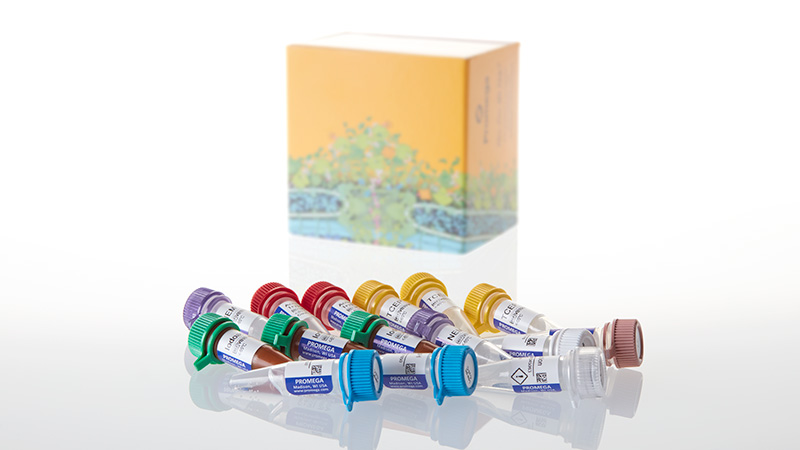인류의 건강과 생명공학 발전을 위해 봉사하는 기업 드림셀
We Serving the Health and Biotechnology of Humanity
We Serving the Health and Biotechnology of Humanity

제품코드 : VA1040
제품정보 : Protease
Nonenzymatic posttranslational modifications (PTMs) spontaneously occur in biotherapeutic proteins during manufacturing and storage. The major nonenzymatic PTMs are deamidation, disulfide bond scrambling and oxidation. These modifications can affect efficacy and stability of biotherapeutic proteins and are the subject of careful monitoring.
Nonenzymatic PTMs can also be induced during protein sample preparation for peptide mapping and can compromise analysis. Major causes of nonenzymatic PTMs induced during sample preparation include alkaline pH and impurities that have protein oxidizing activity.
The AccuMAP™ Low pH Protein Digestion Kits suppress artificial nonenzymatic PTMs, as sample preparation is performed at low pH under either reducing or nonreducing conditions.



Complete suppression of deamidation and disulfide bond scrambling in IgG digested with AccuMAP™ Low pH Protein Digestion Kit. Figure shows extracted ion chromatogram of a GLEWIGAIYPGNGDTSYNQK peptide from Rituximab antibody digested at conventional conditions (pH 8) and at low pH (with AccuMAP™ Low pH Protein Digestion Kit). The data show suppression of deamidation in the upper panel and the complete suppression of disulfide bond scrambling in the lower panel.


UV-HPLC chromatograms of Panitumumab digests. Panitumumab was predigested with AccuMAP™ Low pH Resistant rLys-C, then the reaction was diluted and digestion was completed by incubation with trypsin for 3 hours (upper panel) or overnight (lower panel). In this experiment we used a 1:5 trypsin:protein ratio. Note the accumulation of baseline noise for the overnight digest shown in the lower panel.